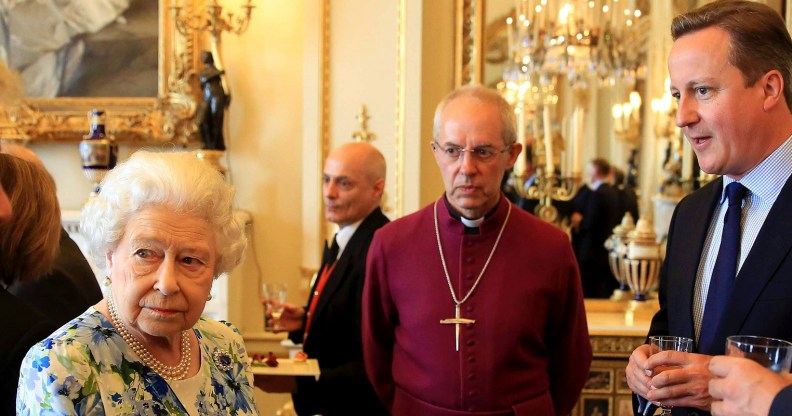UK slips down to third place in Europe’s LGBT rights rankings

The UK has slid down the rankings on LGBT rights in Europe, a year after being unseated from the top spot.
For four years, rights group ILGA-Europe put the United Kingdom at the top of its extensive rankings Rainbow Europe system on LGBT equality.
Prime Minister David Cameron has repeatedly cited the UK’s ranking in the past, saying: “Together we should be proud to live in a country judged to be the best place in Europe if you are lesbian, gay, bisexual or trans.”
On this year’s rankings, released today, the UK places third behind Malta and Belgium – who have both made extensive progress on LGBT issues.

Malta is ranked #1 on LGBT rights, with a score of 88% across a selection of nearly forty criteria, while Belgium is second on 82% and the UK third on 81%, losing points due to new categories including intersex rights.
The move comes following a raft of changes in Malta – which saw a boost after becoming the first country to outlaw surgery on intersex babies, introducing LGBT-inclusive education, and beginning civil unions.
Belgium is one of just three countries in the world to have seen an openly gay Prime Minister – and has also made progressive reforms on LGBT rights.
Stonewall’s International Policy Officer Kit Dorey said: “The UK’s fall in position in ILGA’s Rainbow Map is an important reminder that we can never afford to be complacent in the fight for equality. If we aren’t vigilant, we risk leaving behind some of the most vulnerable people in our society.
“While other countries have made great strides, particularly around gender identity and recognition, our failure to address the inequalities that trans people face is shown all too clearly in today’s index. We urgently need to reform the laws affecting trans people – something Stonewall is committed to seeing through to the end.
“Exercises like this show how important it is to test and challenge equality laws to see if they go far enough. If we want acceptance for everyone, we need to continually review the impact that laws have on everyone, paying particular attention to minority groups.
“The Rainbow Map also demonstrates how nations can learn from each other and that through this learning we can, together, create a world where everyone is free to be themselves.
“Malta has become a real role model for equality – its innovative new gender identity provisions have set the bar higher for trans equality internationally. The UK now needs to catch up, and not just so we can say we’re the number one. We need to catch up because, as today’s results show, there is much more we need to do.”
An individual breakdown requested by Scotland’s Equality Network places Scotland first in Europe if treated separately from the UK. The UK as a whole faces a lower score as progress in Northern Ireland continues to be blocked by the anti-LGBT Democratic Unionist Party, while Scotland has passed more progressive laws in devolved areas.
The rankings have come under fire in the past for failing to entirely weight issues – for example, Malta is able to come first despite not yet implementing same-sex marriage, while Belgium’s patchy gender recognition laws have been criticised previously.
But away from the top, some countries failed to make it into double digits – with Armenia, Russia and Azerbaijan called out for lacking basic LGBT rights protections.
Germany scored just 55 percent.
ILGA-Europe Executive Director Evelyne Paradis said: “Contrary to popular belief, LGBTI equality is far from being a done deal in Europe.
“The picture is actually very mixed at the moment: a lot of the governments that were leading the way on LGBTI equality a few years ago have slowed down their work, especially when it comes to new standards.
“In ILGA-Europe’s 20th anniversary year, we don’t want to see so many lagging behind. Now is certainly not the time for complacency.”
Joyce Hamilton of ILGA-Europe said: “2015 has provided many timely reminders for both the LGBTI community and national governments.
“It reminded activists that our work is far from over. Regression is all too possible if we don’t work to shore up the change we have fought so hard for. Governments cannot be passive, especially those who blazed a trail for LGBTI rights in the past.
“Not only does their passivity mean that they will be bypassed on the Rainbow Europe Map, more importantly, it will give traction to those voices who are trying to undermine the equality gains made by the LGBTI movement. This is a wake-up call for all of us.”

